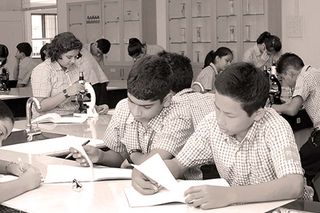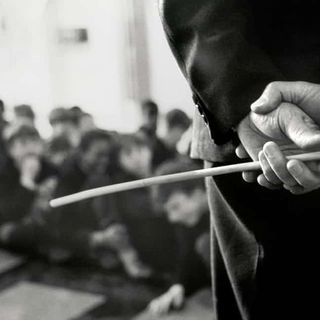
Amendment Dismantling Part of RTE Act Passes Lok Sabha
Experts say reforms go against the spirit of the original law.

On Wednesday, the Lok Sabha passed an amendment to the Right to Education Act that dismantles a key aspect of the original law: a section prohibiting schools from holding back a child to repeat a grade below Class 8, The Indian Express reports. The Right of Children to Free and Compulsory Education (Second Amendment) Bill, 2017, will allow schools to consider detaining kids for another year(s) in Class 5, and again in Class 8.
“Schools have become only schools for mid-day meal, as education and learning are missing,” HRD Minister Prakash Javadekar told The Indian Express, defending the roll-back of the ‘no-detention policy.’
Opposition members “said the proposed legislation lacks ‘clarity.'”
Legal and educational specialists seem to agree. Whether or not children are detained in Class 5 or Class 8 is the prerogative of the state, but must be determined by “a regular examination in the fifth class and in the eighth class at the end of every academic year.” It’s unclear what this examination would entail, or who would set it. Furthermore, the mandate runs counter to Section 30 of the RTE Act, which bans Board examinations during elementary school, several experts told Scroll.
It also runs counter to the very spirit of the 2009 RTE Act, added Disha Nawani, of the School of Education at Tata Institute of Social Sciences, and Niranjanaradhya, of the Centre for Child and the Law at the National Law School of India University. Elementary exams that could result in detention are a far cry from education that is “free of fear, trauma and anxiety,” and the “comprehensive and continuous evaluation of child’s understanding of knowledge and his or her ability to apply the same,” which the original law calls for.
That the amendment is a step backwards appears to be the general consensus. And a confusing step, at that. With the roll back of the so-called no-detention policy, “a struggling fifth grader can be made to repeat a class but a 13-year-old who has never been to school can join Class 8 directly,” Khagesh Jha, an education activist and lawyer, told Scroll. “How can you have these two policies together?”
Jha pointed out that some states have already started enforcing upper-age limits for admission or writing exams. So, children repeating classes will likely find it difficult to secure admission if they move schools, particularly migrant children….
Which means the very children the RTE was enacted to support might be the worst affected by the reform. The amendment further requires private schools to reserve 25% of its Class 1 admission for children from economically disadvantaged families and/or communities and provide them with free elementary education “till its completion.” For many disadvantaged kids, especially Dalit and Adivasi kids, experts say, the new possibility of detention in Class 5 and Class 8 will keep that completion from ever occurring.
“Now they [private schools] can keep the child in Class 5 till they turn 14 and compel parents to withdraw the child. This will make it very easy for private schools to push the children under EWS [Economically Weaker Sections] quota out,” Jha said.
The Bill will next be reviewed by the Rajya Sabha at a date not yet set.
Liesl Goecker is The Swaddle's managing editor.
Related


Delhi High Court Hears Plea For Public Breastfeeding Spaces
